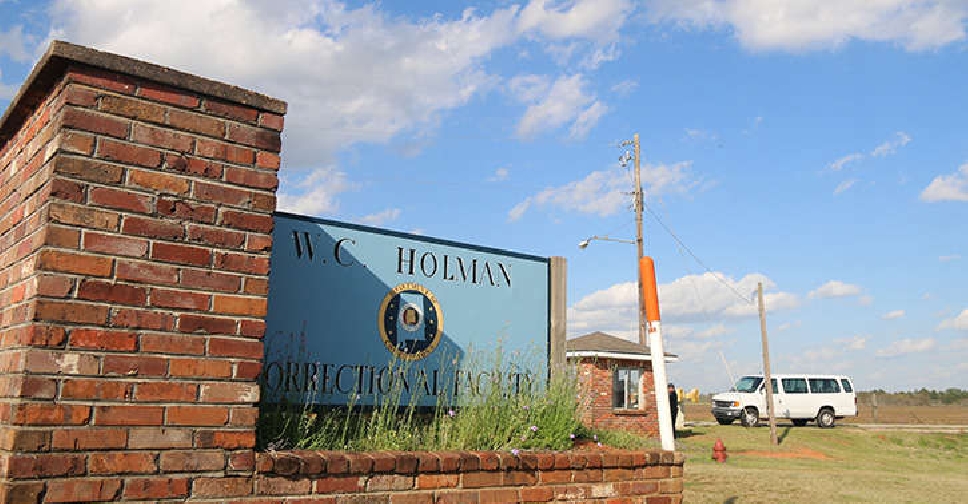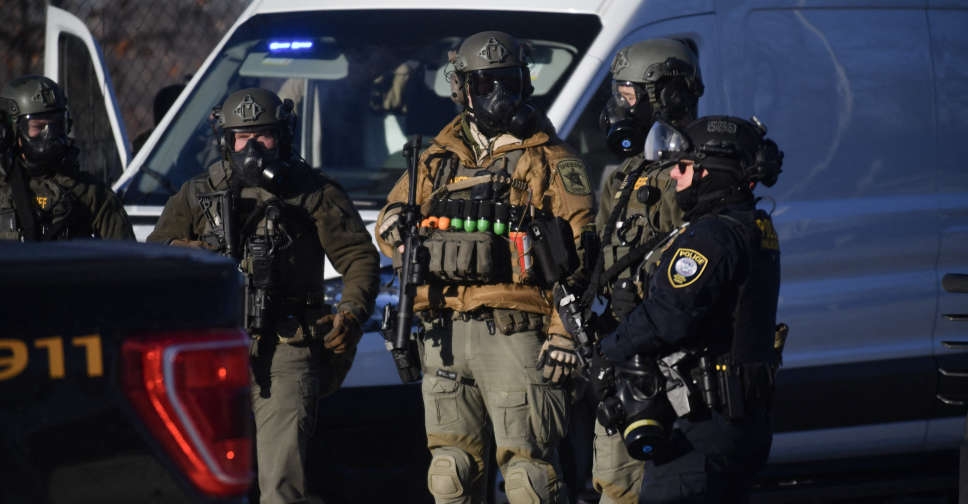
Alabama executed convicted murderer Alan Miller on Thursday, in the second-ever nitrogen-asphyxiation execution since the state pioneered the method, which it says is less painful than lethal injections but human rights experts say may amount to torture.
The 65-year-old shook, pulled against restraints and gasped for breath for several minutes before dying, journalists who witnessed the execution said.
Miller was convicted for the 1999 murders of three men, including two co-workers, in a shooting spree at two offices in Pelham, Alabama. His victims were Lee Michael Holdbrooks, Terry Lee Jarvis and Christopher Scott Yancy.
The state botched an attempt to execute Miller by lethal injection in 2022.
He was taken into the execution chamber for the second and final time on Thursday evening at the Holman Correctional Facility in Atmore. Pure nitrogen flowed through an industrial-safety respirator mask strapped to his face, suffocating him as it displaced oxygen. He was pronounced dead at 6:38 p.m. (1538 GST), Alabama Governor Kay Ivey said in a statement.
Miller's final words were: "I didn't do anything to be in here," according to an Associated Press reporter who was allowed to witness the execution.
Once the gassing began, Miller trembled on the gurney for about two minutes, at times pulling against the restraints. That was followed by about six minutes of "periodic gasping breaths," the AP reporter said.
Alabama Department of Corrections Commissioner John Hamm told reporters afterwards that these were "involuntary body movements" and that the execution had gone as planned.
NITROGEN GAS METHOD QUESTIONED
In January, Alabama executed Kenneth Smith, also convicted of murder, by nitrogen asphyxiation, the first use of a new execution method since lethal injections began in the U.S. four decades ago.
The state predicted that Smith would lose consciousness and suffocate within a few seconds of the nitrogen flowing through the mask.
That did not happen. Multiple witnesses, including five journalists and members of Smith's family, saw Smith heaving against his restraints and convulsing, and it appeared to take him several minutes to lose consciousness.
The administration of U.S. President Joe Biden, a Democrat, said it was "deeply troubled" by the new method. It has been condemned by senior U.N. human rights officials, who say it may amount to torture or cruel and inhuman treatment.
Alabama has defended the method, with Attorney General Steve Marshall calling Smith's death a "textbook" execution.
After Smith's execution, Miller sued Alabama over fears that its asphyxiation method could violate a constitutional ban on cruel and unusual punishments, seeking assurances that the mask would be properly fitted to ensure no oxygen seeps in, prolonging his death.
His litigation ended in a confidential settlement. The Alabama Department of Corrections declined to say if it made any changes to its protocol.
Alabama has offered to help others adopt nitrogen-asphyxiation executions, saying they are a simpler alternative for states struggling to find or use lethal-injection drugs.
Advocacy groups against capital punishment have long pressured pharmaceutical companies to forbid their drugs be used in executions, and have turned their attention to nitrogen suppliers and mask makers, including the maker of the Allegro Safety mask Alabama acquired for its executions.
Stephanie Boucher, a spokesperson for Allegro parent company Walter Surface Technologies in Connecticut, said the company will not comment on the use of its masks in executions.
A spokesperson for Canadian private equity firm Onex Corp ONEX.TO, which has a majority stake in Walter Surface, did not respond to requests for comment.



 Thousands demonstrate in Minnesota and across US to protest ICE
Thousands demonstrate in Minnesota and across US to protest ICE
 France tightens infant milk rules after recalls
France tightens infant milk rules after recalls
 Modi ally proposes social media ban for India's teens as global debate grows
Modi ally proposes social media ban for India's teens as global debate grows
 Indonesia landslide death toll rises to 49, agency says
Indonesia landslide death toll rises to 49, agency says



